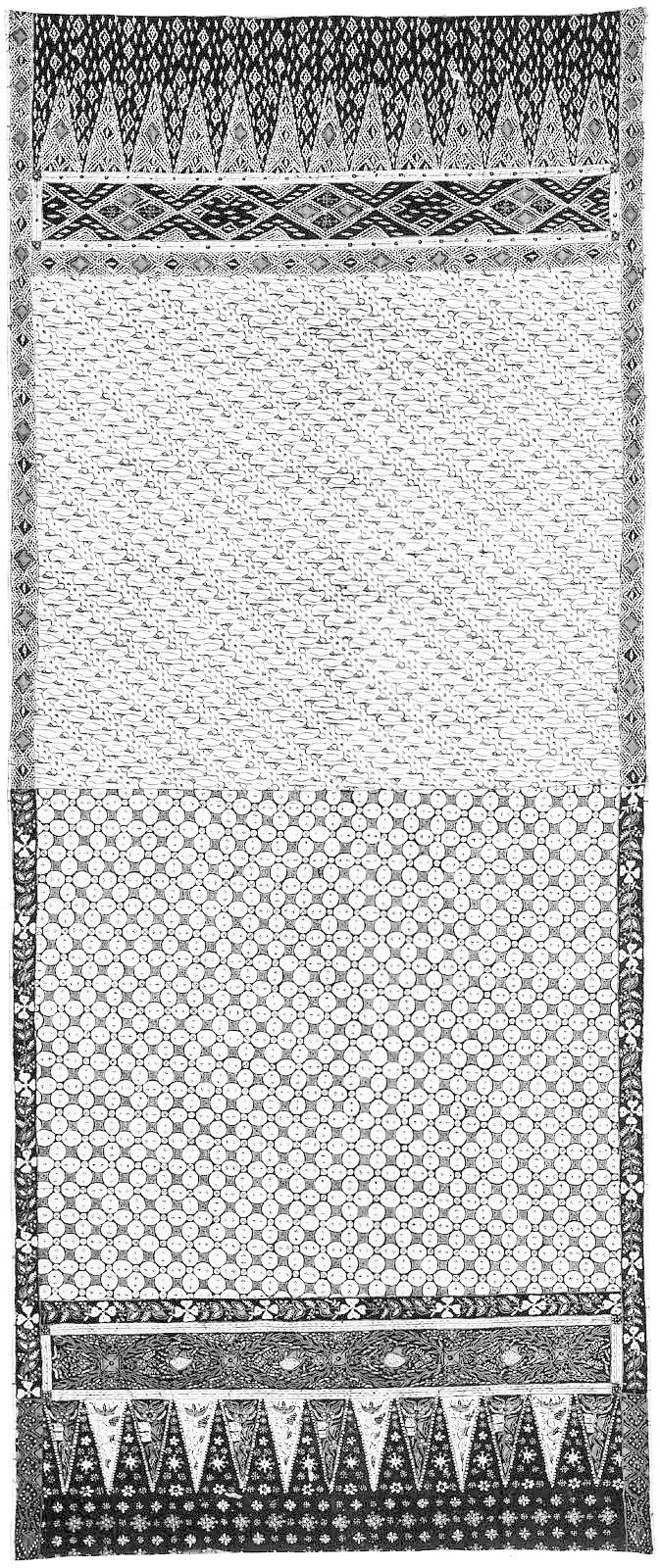Advanced Search 
Batik

Lower body wrapper (pagi-sore sarong)
Batik
Indonesian (Javanese)
Dutch colonial rule
late 19th to early 20th century
Object Place: Java, Indonesia, Central
Medium/Technique
Cotton, natural dyes; plain weave, hand-drawn (tulis) wax-resist (batik)
Dimensions
105.5 x 259.0 cm
Credit Line
Gift of Mrs. Grafton D. Dorsey
Accession Number45.239
NOT ON VIEW
CollectionsAsia, Fashion and Textiles
ClassificationsCostumes
DescriptionMan's or woman's rectangular cotton batik lower body wrapper (kain) divided into two distinct patterns referred to as "morning-evening" (pagi-sore): One half is covered with "broken knife" (parang) pattern in brown and dark blue on a natural ecru ground; the other half is covered with a repeating oval (kawung) pattern in brown and dark blue on a natural ecru ground. At each end is a border with interlocking triangles (tumpal design) with stylized floral and geometric motifs.
The parang and kawung designs are two of the "forbidden" patterns originally restricted to use by the aristocracy at court. The tumpal design reflects influence from Indian textile traditions.
The parang and kawung designs are two of the "forbidden" patterns originally restricted to use by the aristocracy at court. The tumpal design reflects influence from Indian textile traditions.
ProvenanceGift of Mrs. Grafton D. Dorsey to the MFA on April 12, 1945
